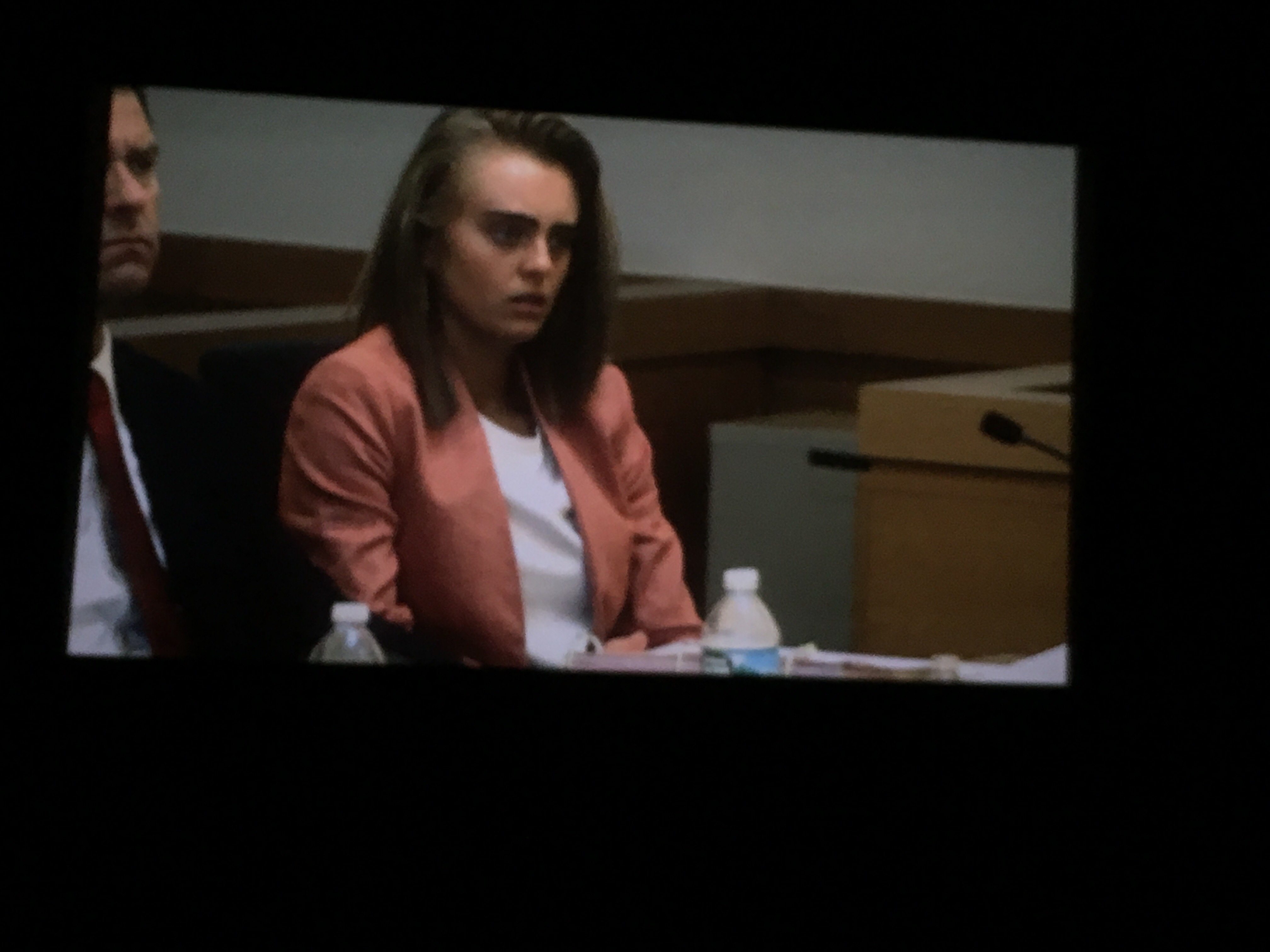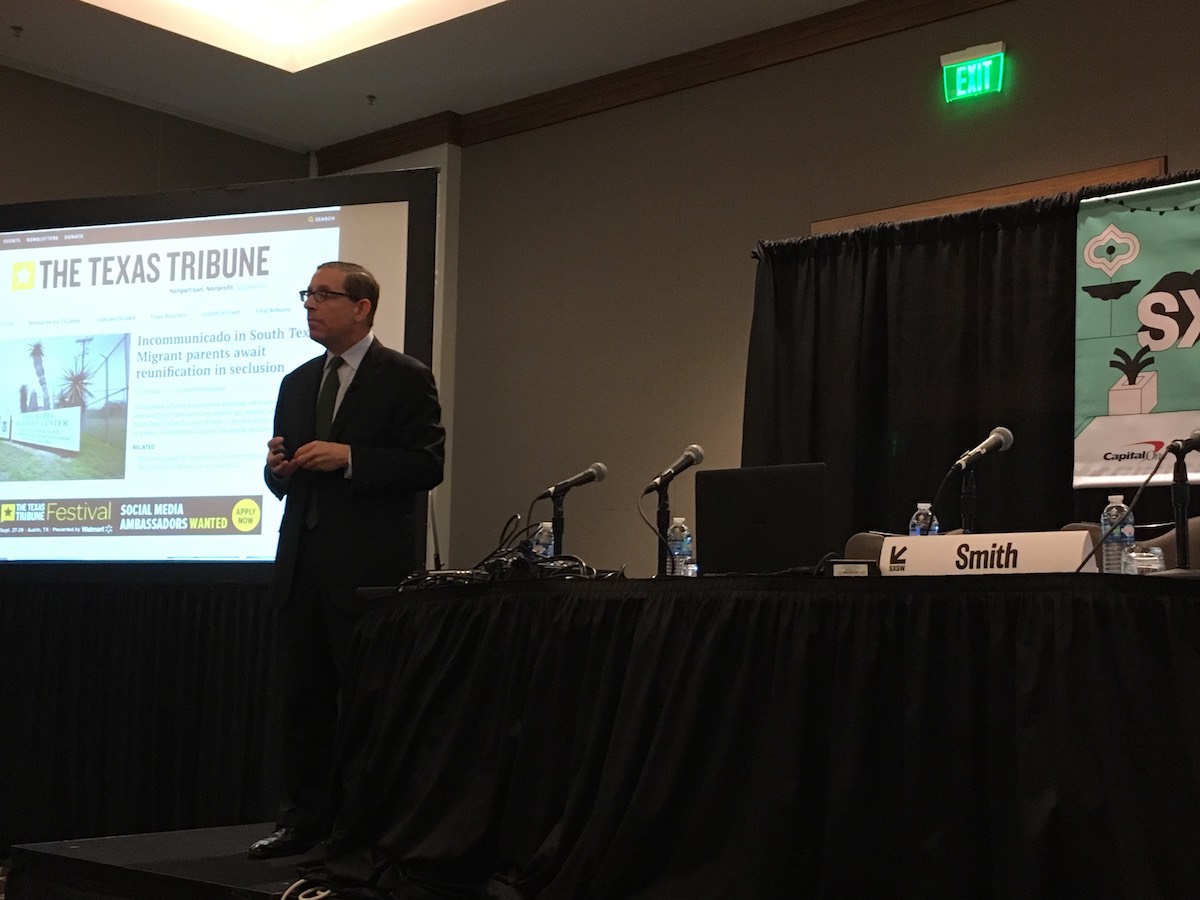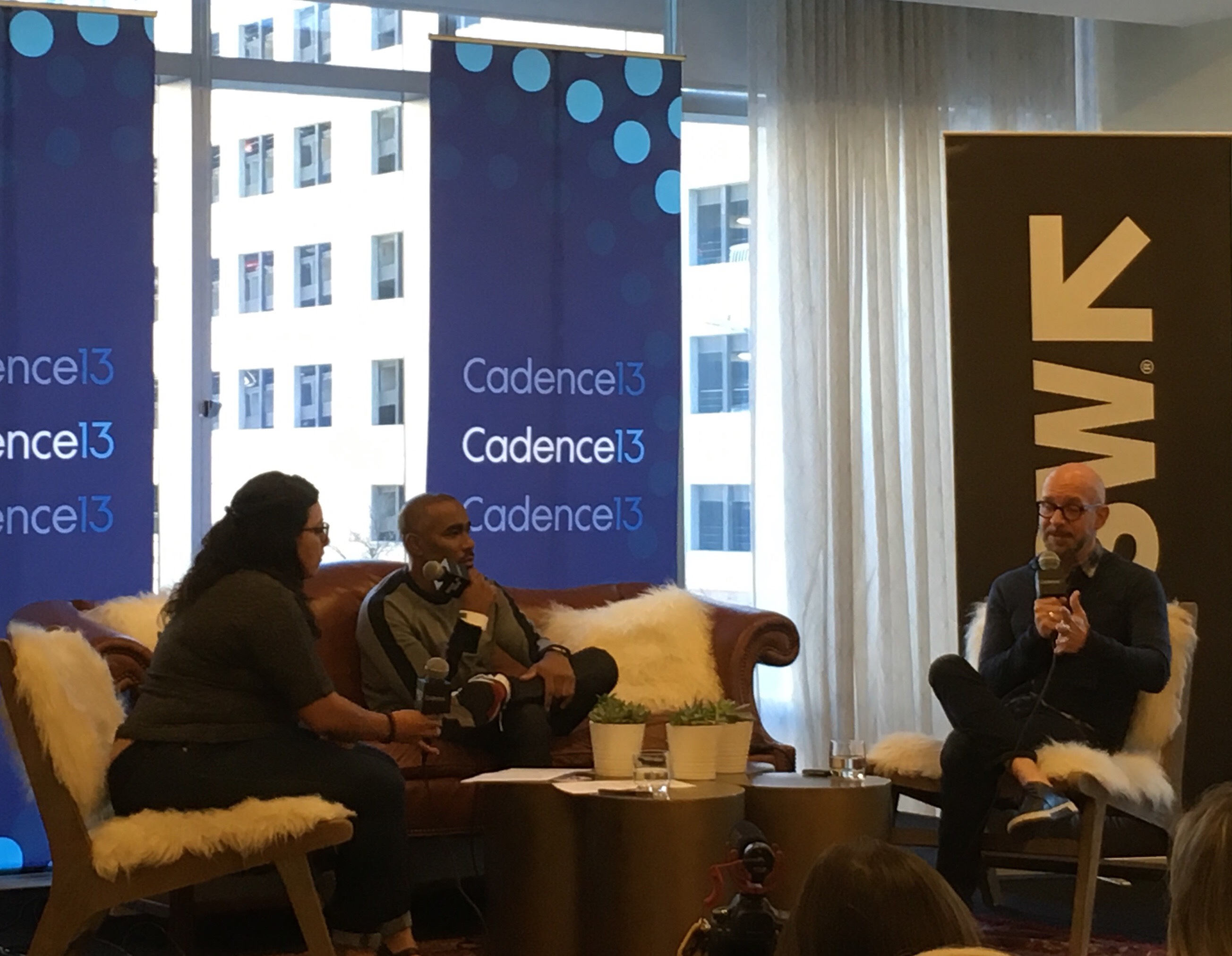SXSW: Making multilayered true crime – Michelle Carter v. The Commonwealth
With so many true-crime documentaries out there, how does a filmmaker make one stand out from the pack?
The answer, according to Erin Lee Carr, is making sure that the crime isn’t just one directional, but sits at the intersection of a crime and a larger problem in society.
Carr joined fellow documentary maker and podcaster Andrew Jenks at South by Southwest Tuesday to talk about that, and more, just days after her film “I Love You, Now Die: The Commonwealth v. Michelle Carter” premiered at the festival.
The documentary explores the death of Conrad Roy, a teenager from Mattapoisett, Mass., and his 2014 suicide. His girlfriend, Michelle Carter, encouraged him to carry out his suicide attempt through text messages and was convicted on involuntary manslaughter charges. She began her prison sentence in mid-February.
“The movie is the greatest part because those are the people who talked to me. So many people said no to me, and I think as a documentary filmmaker, my main job is getting you on the phone and talking to me,” Carr said.
“I tend to want to give a really empathic response to these crime stories. I want to find out what happened here.”
Originally, the case was set to be an episode in a larger true-crime series. Carr said that people at HBO were so intrigued by the story, they chose to make it its own documentary.
There are many layers to Carr’s storytelling, and it goes deeper than the narrative that dominated the headlines that depicted a crazy, evil girl who drove her boyfriend toward suicide. The documentary explores the psychological problems that come with a relationship that is primarily carried out through technology. It explores domestic abuse within Roy’s own family, and his previous suicide attempts. A large focus is around the danger antidepressants can pose to an adolescent brain.
“I think people watch documentaries … because they want to be a part of the conversation…it’s the same way people read longform Atlantic pieces to be like ‘I want to talk about this because I read something,” Carr said in her conversation with Jenks. “Wild, Wild Country is incredible cinema but I’m also learning about identity and religion and like, we are in the age where people are making things that tell us without hitting us over the head with it.”
Visually, the documentary makes it known that the setting is the southcoast of Massachusetts. There are plenty of shots of the beaches in Mattapoisett and the harbor in Fairhaven. While interviewing a woman in her car at the Fairhaven K-Mart in which Roy died, a woman proclaims in a thick Massachusetts accent “your parents aren’t going to miss you while you’re in Framingham for the next 30 years, I swear to god.”
“The areas that we shot in, there were totally characters, just from seeing some of the people we’d find at the diners,” director of cinematography Bryan Sarkinen said during a question and answer session after Wednesday’s screening.
Sarkinen was asked by an audience member if he was a judge, what his verdict would be.
“On that day, based on the information, I’d have to say not guilty,” he said. “Even though going into it, I hated her guts. I’d say throw the book at her; done, done, done. But to me, it’s shaping up to be more of a mental health thing. She needs treatment, she needs help.”
Carter and her family were not interviewed for the documentary, though her attorney Joseph Cataldo is featured heavily throughout.
Carr is the daughter of famous New York Times reporter David Carr, who died of heart failure in the newsroom in 2015. His work as a print journalist was not lost on his daughter, who said that documentarians often don’t give reporters the credit deserved.
“There’s many forms of journalism, and my dad was this incredible journalist,” she said. “And you know, he didn’t add music to his stuff. I think we do something different.”
Sarkinen called the film one of the most difficult to shoot in his career.
“It was impossible to not get emotionally invested,” Sarkinen said. “Just seeing Lynn Roy, mom; devastating, not feeling good during the interview, not feeling good afterwards. Just reopening someone’s wounds and pain.”





